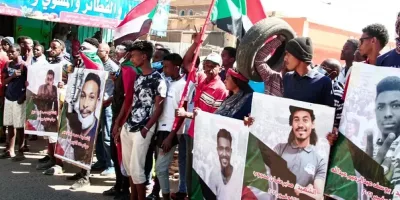The Committee for Justice said that the report of the United Nations Human Rights Committee on reviewing Egypt and the extent to which it implemented civil and political rights has shown the extent of the disgraceful human rights situation in the country, and the failure of the Egyptian authorities to hide the facts that have become clear to everyone now. CFJ welcomes the report, considering it a basis that can be built upon to stop the systematic human rights violations in Egypt.
The Committee has issued a report highlighting its concerns about rampant human rights violations in Egypt. The most important recommendation was the stress on the importance of ensuring the independence and effectiveness of the National Council for Human Rights and the effective implementation of its recommendations, which indicated the lack of available information on the extent of the authorities’ commitment to implementing them.
Terrorism laws and executions:
The Committee expressed concern about the broad and vague definitions of terrorism in the Anti-Terrorism Act and the Terrorist Entities Act, the broad range of offenses punishable by the death penalty under anti-terrorism laws, and the use of those laws to suppress dissenting voices through prolonged pre-trial detention or mass trials that lack the slightest elements of a fair trial.
The Committee also expressed concern about the wide use of the death penalty and the large number of crimes that carry the death penalty, including non-violent crimes that do not meet the threshold of “most serious crimes”, as well as allegations of cases in which death sentences have been imposed on the basis of confessions obtained under coercion, torture or in the context of trials that did not meet fair trial standards, such as military trials, and emergency state security trials.
Enforced disappearance and torture:
The report also touched on the increase in the number of cases of enforced disappearance in Egypt, and the occurrence of reprisals against defenders of victims of enforced disappearance, including civil society organizations, family members and lawyers. It called for cases of disappearance to be uncovered, investigated and punished for those responsible, reparations for the victims, and in the event of death, identifying the body of the deceased and returning it in a dignified manner to their family.
The Committee was also concerned about the reported systematic use of torture by law enforcement officials in Egypt, and that torture and ill-treatment are widespread in places of deprivation of liberty, and that these acts are widely practiced by the police and state security agencies during the stages of arrest, interrogation and investigation.
Conditions of detention:
Regarding the conditions of detention, the committee stated that the conditions of detention worsened during the Covid-19 pandemic, as detainees were not allowed sufficient access to examination and isolation rooms when necessary, and personal visits were suspended without providing alternatives.
The Committee also expressed its concerns about multiple reports indicating that political detainees are often subjected to particularly harsh conditions, including deliberate denial of health care, family and lawyer visits, and prolonged periods of solitary confinement, resulting in deaths as a result of intentional denial of health care, all of which have not been investigated effectively and transparently.
Politicization of the judiciary and restriction of the right to peaceful assembly:
Concerning the independence of the judiciary, the Committee noted that reports had been received confirming the politicization of the judicial and public prosecution authorities in Egypt. This led to the emergence of politically motivated cases against actual or perceived political critics and opponents, marked by prolonged pretrial detention and violation of fair trial guarantees. IT also expressed concern about increased jurisdiction and widespread recourse to emergency courts and military courts to prosecute individuals under overly broad provisions of anti-terrorism legislation and other laws.
The Committee also expressed concern that Law No. 107/2013 on the Regulation of the Right to Public Meetings, Marches and Peaceful Protests (the “Protest Law”) imposes undue restrictions on the right to peaceful assembly, and allows security forces to ban protests on very broad grounds, and the use of unnecessary and disproportionate force against peaceful demonstrators, particularly during the dispersal of the Rabaa and al-Nahda sit-ins on August 14, 2013, which resulted in the killing of at least 900 protesters. The Committee regretted the lack of information provided by Egypt regarding the penalties imposed on police and security personnel in the context of the investigation of such events, and that this has created a climate of de facto impunity.
Alternatives and recommendations:
CFJ stressed the importance of the Egyptian authorities’ interaction with the Human Rights Committee’s recommendations contained in the report and not neglecting them – as usual -, with the need to find alternatives to the UN’s dealing with the Egyptian situation in the event of the continuation of these violations, and not to suffice with issuing recommendations or condemnations without creating pressure to implement them on the ground.
CFJ also called on Egypt to review the Anti-Terrorism Law and the Terrorist Entities Law, to clarify and narrow down broad definitions of terrorism, stop the misuse of counterterrorism measures for repression, and end the use of mass trials that by their very nature do not comply with international standards.
CFJ also called on Egyptian authorities to ensure that the death penalty is never imposed in violation of the Covenant, that evidence extracted under duress and torture is not admissible in court, and that no one who was under 18 at the time of a crime is subjected to the death penalty.
CFJ also requested the authorities in Egypt to take all necessary measures to prevent torture, while ensuring that all allegations of torture and ill-treatment, including sexual violence, are promptly, thoroughly, independently and effectively investigated, that perpetrators are prosecuted and, if convicted, punished with appropriate penalties, with effective implementation of existing legislation prohibiting the use of coerced confessions in legal proceedings.
CFJ also called on Egypt to ensure that conditions of detention comply with international standards, while guaranteeing detainees immediate and regular access to their legal representatives, their families and any medical assistance they may need, with the need for thorough, impartial and independent investigations into cases of death in custody, and ensuring independent and unhindered access to places of detention through independent monitoring and oversight mechanisms.






